17:55
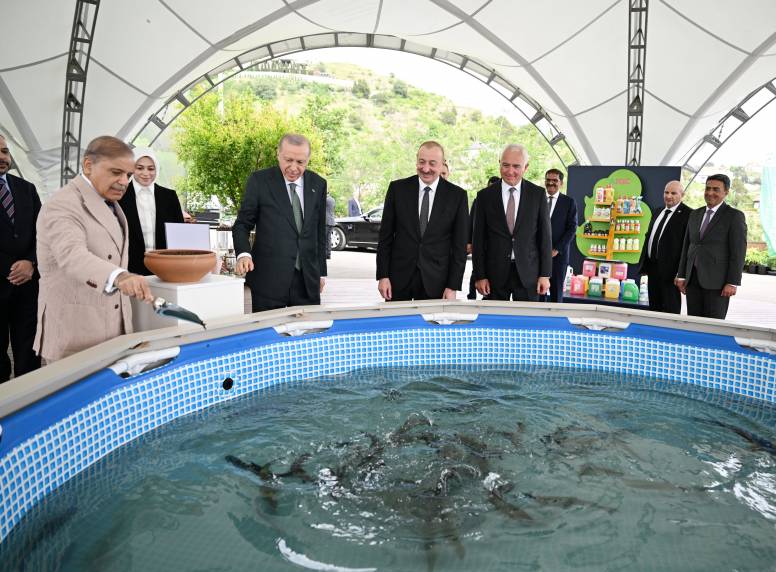
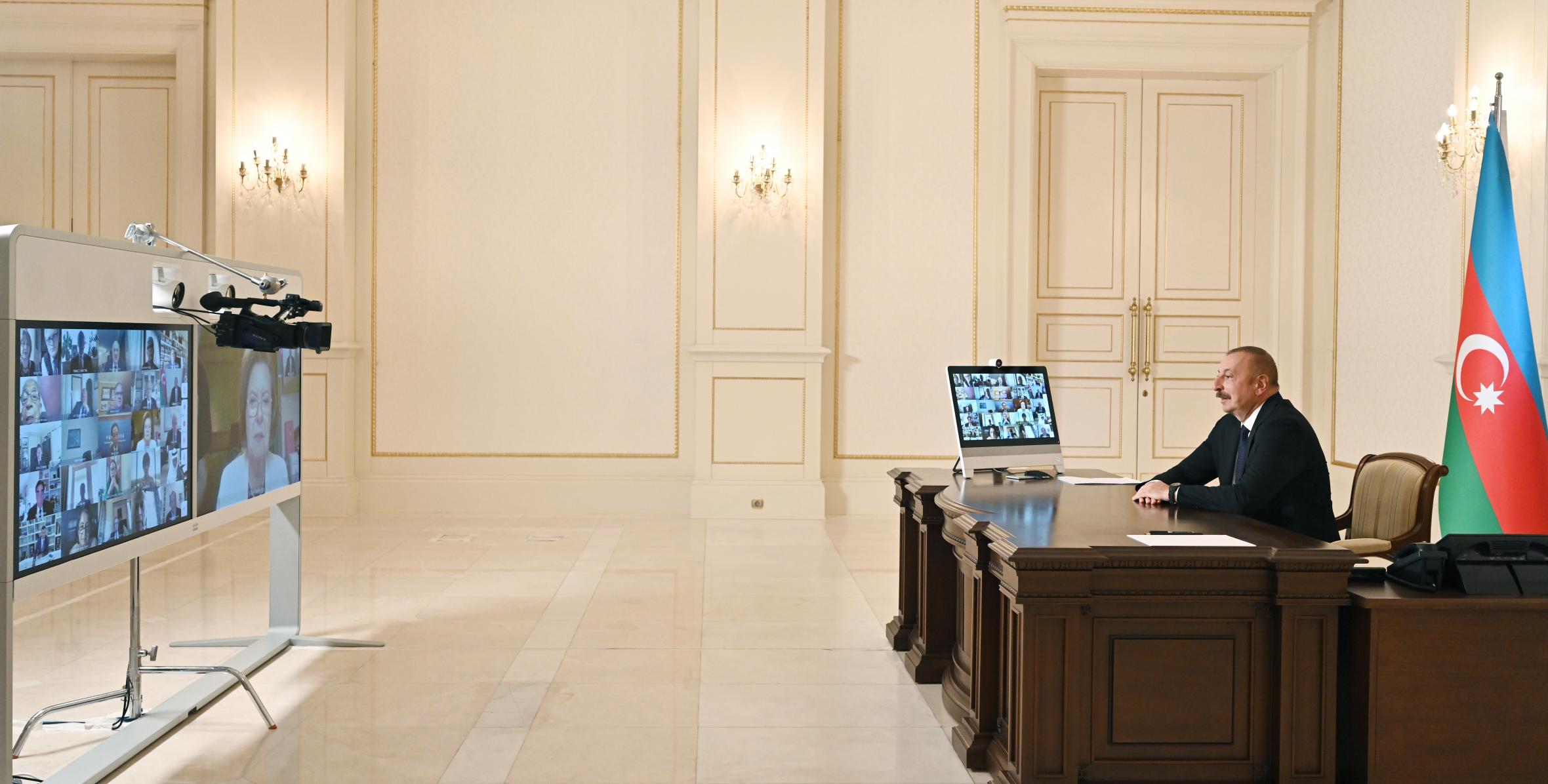
The Nizami Ganjavi International Center's web discussion themed "The South Caucasus: Regional Development and Prospective for Cooperation" has been held with the participation of the President of the Republic of Azerbaijan Ilham Aliyev.
Opening the discussions, the former Vice President of the World Bank and co-chair of the Nizami Ganjavi International Center, Ismail Serageldin, said:
- Mr. President, Your Excellency, Ladies and Gentlemen, members and friends of the Nizami Ganjavi International Center!
It is a momentous day for the Center. We are delighted that President Ilham Aliyev is joining our dialogue and will share his plans and wishes related to the region. Mr. President, eight years ago, you asked to create an International Center to promote the legacy of brilliant Azerbaijani poet Nizami Ganjavi. International members joined the organization, and a board was set up. Then co-chairs were elected to determine the Center's directions of activity and program, and the Secretary-General was appointed.
Mr. President, you have shown us confidence, and we hope that we have managed to live up to it. A lot has been done in eight years, and you have provided it with a great deal of support. The Nizami Ganjavi International Center is gradually gaining more and more popularity at the international level. The Baku Global Forum has become the main event in the region and has taken a special place in the international calendar. Many prominent personalities of the world have taken part in these events. In addition to the forum, the Center has organized many other events, brought up for discussions related to the Balkans, the South Caucasus and Europe. Then our organization expanded its international activities, adopted a strategy of forging relations with the United States and the UN, and began to pay attention to an increasingly developing China.
Mr. President, in all spheres of our activities, we promoted the legacy of Nizami and the position of Azerbaijan as a country with a rich culture. We have become a platform for the discussion of the challenges facing humanity. The Nizami Ganjavi International Center has become known as a platform for learning, tolerance, dialogue and mutual understanding. But then the pandemic occurred. We had to postpone the Baku Global Forum, which was initially scheduled for 2020. At the same time, you will probably be pleased that in the coming months of 2021, we intend to hold the Baku Global Forum successfully. According to the Board's instructions, we, together with the Secretariat headed by Secretary-General Rovshan Muradov, are closely cooperating with Hikmat Hajiyev and your protocol service on the organization of the "Baku Global Forum 2021" so that this event is held per the calendar and our wishes.
Despite the COVID-19 pandemic, restrictions and postponements of visits, our Center is working hard. We are making full use of new technologies and doing our best, holding 28 conferences and 90 sessions. Our events featured a total of 370 speakers and brought together participants from 60 countries. We have covered all topics from global solidarity in the face of the pandemic to the emerging world order and ways to strengthen multilateralism. The issues of food security, education, and women's role in achieving peace have also been discussed. In doing all this work, we have established partnerships with influential organizations, famous laureates and individuals. We have doubled the number of our friends and partners. We are grateful to the representative from China, Ph.D. Shan, for co-chairing our international council of friends.
Along with all these activities, we are very active in efforts and solidarity initiatives in the fight against the pandemic and its consequences. We are sure that Your Excellency has received positive feedback on this work from many places. We have also published and distributed numerous materials. Many renowned individuals have been involved in this work. The media also appreciate our activities. Over the past year, we received 12 letters of appreciation. A significant part of them is related to the "Helping People in Need" initiatives. Former British Prime Minister Gordon Brown is currently working on a final letter to be presented on our behalf to G-7 and G-20.
If we look at last year, we can say that this period will be remembered by the growing international authority of the Center, hard work, the expansion of cooperation with influential international organizations and academies of sciences and scientific institutes of the world. We have strengthened our positions in the media. We hope that we will complete the work reported to Your Excellency during our last meeting in the coming weeks.
Mr. President, I can speak for a long time. However, I know that everyone wants to listen to you. After completing the report on our work, I promise that soon, we will present it to your attention and distribute it at the Global Forum this year. We hope that Your Excellency will be pleased with the Center's activities before and after the pandemic.
And now, with your permission, I will give the floor to co-chair Vaira Vike-Freiberga.
Thank you.
President Ilham Aliyev: Thank you.
Former President of the Republic of Latvia, co-chair of the Nizami Ganjavi International Center Vaira Vike-Freiberga said:
- Your Excellency, Mr. President! Ladies and Gentlemen!
Today we feel a sense of boundless pride due to our participation in a dialogue between the International Center of Nizami Ganjavi and the President of the Republic of Azerbaijan, His Excellency Mr. Ilham Aliyev. We will begin our meeting with a speech by the President. Then we will move on to questions and answers. We are grateful to Mr. President for accepting our invitation.
Mr. President, we look forward to your view on the position of Azerbaijan in this challenging time for the planet, your plans related to the future of the country and how they are in line with the global agenda. Mr. President, we are looking forward to your words.
President of the Republic of Azerbaijan Ilham Aliyev delivered remarks at the event.
Remarks by President Ilham Aliyev
-Dear co-chairs of the Nizami Ganjavi International Center, Madame Vike-Freiberga and Mr. Serageldin.
First of all, I would like to greet all the participants of today's discussion. I want to use this opportunity to express gratitude to the co-chairs and members of Nizami Center for initiating this discussion. I think it's very timely. The topic you have proposed - The South Caucasus: Regional development and Prospective for Cooperation - is now among the critical topics on the global agenda due to drastic changes in the South Caucasus recently.
Of course, the new situation needs new approaches. But first of all, I would like to congratulate Nizami Ganjavi International Center for its excellent performance. During the pandemic, the Center adjusted itself very wisely to a new situation, and regardless of the situation with the pandemic continued its activity and continued in a new form. But as Mr. Serageldin said, we hope to get together in Azerbaijan later this year to organize our regular Baku Global Forum. Also, during these eight years of energetic performance, the Center became one of the leading international institutions globally. Its broad activity serves the cause of peace, cooperation, security, stability in the world.
Members of the Center are well-known, famous world politicians who had held top positions in the countries and international organizations for many years. So your experience is unique. So, such a concentration of expertise under one roof is, I think a very special in today's world. Now to Azerbaijan's views on what happened and what is going to happen. Of course, I would like to say that the recent development in the region, the second Karabakh war, drastically changed the situation. Therefore, there is need for new approaches, the need for a new agenda for South Caucasus. I fully appreciate the topic of the discussion, regional development and prospective for cooperation because that is what we need.
Due to occupation, which lasted almost 30 years, Azerbaijan openly declared its position that we will not cooperate with Armenia until the territories are liberated. I think that Armenia now understands that they made a huge mistake because they lost time. If we look at today's situation in Armenia, we see that the situation is much worse than when Armenia only became an independent country because today Armenia doesn't have an army. It has been destroyed, and the country has been in a permanent political crisis for more than six months.
There is a considerable degree of mistrust in society, mutual accusations, and political leaders' rhetoric beyond any acceptable framework. So, they lost time, they were deprived of the initiatives of Azerbaijan concerning energy and transportation development, and ultimately, lost the territories they occupied and the territories that never belonged to them neither by history nor by international law. But now, after the conflict is over, the Nagorno-Karabakh conflict has been resolved, has been resolved primarily by Azerbaijan, through a trilateral statement of November 10 last year. Now we need to look into the future. Despite 30 years of occupation and large-scale destruction and devastation on the liberated territories, Azerbaijan is ready to look to the future - to plan its future as part of an integrated South Caucasus region. We hope that the time will come that we will indeed talk about active cooperation in the South Caucasus and integration. We all already made significant proposals and initiatives, by the way, which are reflected in the trilateral statement of November 10, 2020, particularly with respect to the opening of communications and opening new transportation corridors. I can tell you that the work has already started on the implementation of this project. Azerbaijan already allocated technical and financial resources for that. And when the Zangazur corridor opens, it will open new opportunities for all the region's countries. Therefore, I would like to say that Azerbaijan is open to cooperation, open to planning our shared future because we are neighbors whether we like it or not. We have to live side by side, and we need to learn once again how to live side by side. It's not easy; emotions are here, especially when Azerbaijani people visit liberated territories and see total destruction. You can imagine what kind of emotions they have. But the role of politicians is to defend their agenda and explain that only through interaction can we provide sustainable development and peace and security in the region.
Probably I will stop now because, during the several Baku Global Fora, throughout all the fora and all the events, I used to speak of Nagorno-Karabakh. So you know exactly what happened, how it happened, the results, and I think there is no need to repeat. Better to have more time for our dialogue. So, thank you very much, and I am ready to answer any questions you have.
Vaira Vike-Freiberga: Thank you, Mr. President. Thank you very much for your clear opening remarks and your support of the idea of establishing a dialogue with members and friends of the Nizami Ganjavi International Center. It is a very significant event, and there is great interest in it. Our audience is thrilled to have the opportunity to ask you a question personally. As a result, we have received requests for participation in this dialogue from many participants in today's event. My first request to the audience and all participants as someone who acts as the moderator of this event: please try to formulate your question as briefly as possible so that those who join the meeting afterward have the opportunity to ask a question per the time generously allocated by His Excellency Mr. President.
Based on the topics, I have included them in groups of two or more people. For each general topic, I will introduce the first speaker and ask them to ask a question. I will then present the second speaker and create an opportunity for them to ask a question. Only then will His Excellency Mr. President answer the questions. It will help us to speed up the dialogue and ask as many questions as possible within the allotted time. So let's declare the question and answer session open. The first question is about the role of Azerbaijan as an important regional party and a significant country from a geostrategic point of view. I would like to give the floor for the first question to the Director of the South and Central Asian Department at the US National Security Council at the White House in 2005-2007, former Deputy Assistant Secretary of State for European and Eurasian Affairs and the Board of Trustees member of Nazarbayev University, Mr. David Merkel. Mr. Merkel, the floor is yours.
David Merkel: Thank you very much, Mr. President. I am very glad to see you. I look forward to the opportunity to meet with you personally in Baku soon. The late Zbigniew Brzezinski, who had great respect for you and Azerbaijan, called Azerbaijan an important strategic center on a large chessboard and said that independent Azerbaijan would deliver the energy resources of the Caspian Sea to the West. He also said that if, on the contrary, Azerbaijan was unable to pursue an independent policy, this would lead to Russia's dominance in Central Asia. A lot has happened since that time, and it is now time to look at the large chessboard again. What can you say about the role of Azerbaijan in the delivery of energy resources to Europe and the possibility of logistically linking Asia with geo-strategically important Europe, given the resolution of the Nagorno-Karabakh conflict and China's Belt and Road Initiative and the role of multilateral development banks after the settlement of the Nagorno-Karabakh conflict? Thank you
President Ilham Aliyev: Thank you. Thank you very much.
There have been actually three questions put by Mr. Merkel, and I would like to answer the issues related to energy delivery to Europe. The last day of the previous year was remarkable from the point of view of completing the historical project of the Southern Gas Corridor. So, 3.5 thousand km of three integrated gas pipelines have been put together, and they are connected as a whole project. The first delivery of Azerbaijani gas to Europe happened. That was a historic event because the project was really a big challenge from all points of view, from a financial, political, technical point of view and we really worked as a good team, team of several countries. Some of them are members of the EU. We made a significant contribution to Europe's energy security. Considering the new discoveries in Azerbaijan and the new production level, it's a project for decades ahead. The gas from Azerbaijan is a new gas for the European continent, is now the only new source of gas to Europe, and it also strengthened to a large degree the bilateral and multilateral relations between the countries involved. So that issue is considered to be completed. Talking about the logistical support to connect Asia and Europe and the Chinese "Belt and Road" initiative, this is also an essential part of the international agenda. Azerbaijan, on its territory, completed all the necessary transportation projects. Together with the partners, we already have an essential connection between Asia and Europe as part of the "Belt and Road" initiative. We provide our infrastructure, including our seaport, the largest vessel fleet in the Caspian and railroad opportunities to be part of this critical project. So, we invested in this project financially and politically.
I hope that these two crucial dimensions, energy and transportation security, will play an important role not only for the future economic development in Azerbaijan because they will generate additional revenues and seriously contribute to regional stability. The countries become interdependent. Countries become members of one team as we sit in one boat. Of course, the level of mutual support will definitely grow. To the last questions of Mr. Merkel about international banks, I can tell you that as we were implementing the Southern Gas Corridor project, all the major global financial institutions were our partners - the World Bank, EBRD, Asian Development Bank, European Investment Bank, and the bank which was founded by China, the Infrastructure and Investment Bank. So, all the leading international financial institutions were part of the project and also that was a clear message to commercial banks to render support.
As to the projects on the liberated territories, we have allocated for this year's reconstruction 1.3 billion USD from our budget, and frankly speaking, we are not looking for some loans from the banks. We would appreciate considering the opportunities to invest because there are many investment opportunities across the liberated territories. We have great plans for reconstruction. Therefore, we will be happy if banks help foreign and local investors implement projects on the liberated territories rather than provide direct financial support to Azerbaijan, which we do not need. Thank you.
Vaira Vike-Freiberga: I would like to ask for a question from our second participant – the Deputy Prime Minister of Georgia in 2010-2012 and the Georgian Minister of Foreign Affairs in 2008, Mrs. Eka Tkeshelashvili. Please, Eka.
Eka Tkeshelashvili: Good afternoon, Mr. President.
President Ilham Aliyev: Good afternoon.
Eka Tkeshelashvili: Your Excellency, Azerbaijan has played a pivotal role in transformational projects in the region. This creates opportunities for the transformation of Azerbaijan into an important country of the Caucasus in terms of the overall energy security of Europe, the development of international trade and relations on a global scale. How would you assess the processes that have taken place in this direction so far? In your opinion, has the moment come to expand the scale of progress? However, there are some missing links and challenges that we need to take into consideration.
President Ilham Aliyev: Thank you for your appreciation of the role Azerbaijan is playing. However, I can tell you that alone we wouldn't have completed this important project. Therefore, our cooperation with Georgia throughout the implementation of all these projects was of strategic importance. As you very well know, the first pipeline built from Azerbaijan in the time of independence was a pipeline to Georgia, Baku-Supsa. It was commissioned at the end of the 90s and allowed Azerbaijan to start exporting oil to international markets, and Baku-Tbilisi-Ceyhan was built 6-7 years later. So, that was a milestone of development that reflected our joint will to create an absolutely new situation in the Southern Caucasus region. It's evident that energy and transportation projects transformed Southern Caucasus, the two South Caucasus countries - Georgia and Azerbaijan. It allowed our countries to receive additional financial resources. It increased the importance of our countries for our international partners. It forged a strengthened partnership that allowed us to invest in transportation projects and connectivity and power generation projects. So, this real foundation of today's Southern Caucasus was due to our joint efforts. To the missing links you asked, I think, after completing the last portion of the Southern Gas Corridor, Trans-Adriatic pipeline, all the links have been connected. At the same time, the completion of the Baku-Tbilisi-Kars railroad several years ago also joined all the links in the area of the Caspian, Caucasus and Turkey. Therefore, we can think about future plans from the point of view of creating new connections. For instance, one of the projects we are now working on is expanding our presence in the European energy market by joining the infrastructure of the Western Balkans. We are currently in the active phase of negotiations with several countries of former Yugoslavia concerning gas delivery to those countries. You know, after you complete one important project and think that the mission is over, then some new ideas emerge, and this is how the progress is showing itself. So, I am sure that we will find another dimension of fruitful cooperation and expand the team of countries and expand our friendship.
Vaira Vike-Freiberga: Thank you, Mr. President. The following two questions are about Azerbaijan's relations with specific countries. I will now give the floor to Mrs. Tzipi Livni for the first question. Mrs. Livni was Israel's Foreign Minister in 2002-2010.
Tzipi Livni: Thank you. First of all, I would like to express my appreciation for opening an office in Israel for enhancing tourism and commerce. Thank you for that. My question is related to the USA, the new US administration and Russia. What are your expectations regarding the policies of these countries regarding the region and the challenges it faces?
Vaira Vike-Freiberga: Mr. President, let's now give the floor to the President of Ukraine in 2005-2010, Victor Yushchenko, to ask a question.
Viktor Yushchenko: Dear Mr. President Ilham Heydarovich. First of all, I want to congratulate you on resolving the Nagorno-Karabakh conflict, which is the most critical issue related to territorial integrity. It was a dream that took 30 years to come true. As you know, in 2006, we established the international organization GUAM, which included four countries. This organization was supposed to deal with security, economy, cooperation, humanitarian cooperation and infrastructure. How would you see the roadmap for the further activities of this organization?
Vaira Vike-Freiberga: Mr. President, we are looking forward to your answers.
President Ilham Aliyev: Thank you very much. The first question is about our expectations regarding the policy of the United States and Russia in the region. Russia and the United States, as the co-chairs of the Minsk Group for almost 30 years, were part of the active processes of negotiations between Azerbaijan and Armenia. Unfortunately, these negotiations did not produce any result. However, it's also clear, especially now, when relations between the United States and Russia are at a very low level, that conflict resolution was probably the only issue where Russia and the United States had very active and very open cooperation. So in a certain way, Azerbaijan, with its conflict, plays an important role in at least having one area where these two superpowers can sincerely cooperate. At the same time, I'd like to say that before the pandemic, the highest military officials of Russia and the United States, chiefs of the staff of the armies of both countries, had regular meetings in Baku. Also, the chief of staff of the Russian army and military commander of NATO several times had a round of negotiations again in Baku. They could have selected any other destination, but choosing Baku is a good reflection of the independent foreign policy of Azerbaijan first of all and is a reflection of the high-level respect to our country and trust in our country. We consider these factors as the main factors in choosing this location of Azerbaijan. With the United States, our relations are less diversified than with Russia, and this is obvious because with Russia, we have a long history of communications, and we are neighbors. Therefore, with Russia, our relations are very diversified. They cover almost every area. With the United States, our main areas of cooperation are counter-terrorism and peacekeeping operations, be it in Iraq or Afghanistan, and now energy security and some other areas. The policy of both countries towards Azerbaijan has always been stable and predictable, and so has been our policy towards them. With both countries, we have relations of strategic importance. Of course, it's different agendas but very open, very clear, and without any surprises, because we always say what we mean and always stand by our words. I think that's one of the reasons why we managed to establish good relations with many countries. And it is not only Russia and the United States. Some countries don't have good relations between themselves. So, I think that the policy of the United States and Russia on Azerbaijan will continue to be very stable. My recent communications with high-ranking officials, with President of Russia, with national Security Adviser of the United States and the Minister of Foreign Affairs of Russia, demonstrate that we want to expand our cooperation. Both sides consider these relations as strategically important. So, after resolving the Nagorno-Karabakh conflict, I think it will be easier to plan for the future because this conflict was, to a certain degree blocking some areas of cooperation where we could have a very active format of cooperation but were unable due to that reason. So, the resolution of the Nagorno-Karabakh conflict creates an absolutely new atmosphere, and we hope that Russia and the United States will continue to have great importance to our country. Also, I'd like to answer the question of dear President Yushchenko about GUAM. He reminded me of a time when this organization transformed and acquired a new name - Organization for Democracy and Economic Development. As Viktor Andreyevich correctly pointed out, the agenda of GUAM was comprehensive, and he remembers very well that his term of presidency of Ukraine probably was the most active time of GUAM. We had regular summits every year in different capital cities. We had informal discussions. We had a very active phase of the development of this organization. Also, presidents of some other countries on many occasions joined us, and it showed the organization's appeal. But also, my dear friend Viktor knows very well that it always was Ukraine who played a leading role in GUAM. Therefore, changes in the political agenda after he left office led to some deterioration of the organization. It ceased to be one of Ukraine's foreign policy priorities. Therefore, slowly-slowly we started to see that GUAM is losing momentum. There are fewer meetings, fewer communications and fewer joint projects. Despite that, what we have been discussing during that time, particularly, delivery of Azerbaijani oil to Ukraine, and we succeeded, and not only that. Today Azerbaijan has an extensive distribution network in Ukraine. Oil supply from Azerbaijan to Ukraine, which we worked with Mr. President Yushchenko actively on, is now a reality. Again, it will largely depend on the agenda of the Ukrainian government whether GUAM is still a priority of their foreign policy or not. Of course, that will be the main factor for the organization - whether to reemerge or remain idle. And, of course, issues related to some domestic issues in the member states to a certain degree also created some difficulties. In some countries, the government changes took place so rapidly so that they could not even have time to formulate the foreign policy agenda. But Azerbaijan always was a stable country in this respect, and if there is such a demand from all member states, of course, we will do what we think is right. At the same time, trade relations with Ukraine are growing. trade and energy cooperation with Georgia is on the rise. Now there is a transportation dimension. Ukraine was using Azerbaijan's logistics and transportation network to transport goods to Central Asia at some point. So all of that is possible. We need to plan future steps based on pragmatism and mutual support, which GUAM countries always demonstrated towards each other. One of the important elements of the organization is that always in United Nations, we supported each other on the issue of territorial integrity of our countries and that consolidated position was crucial for bringing painful issues of our countries to the attention of the international community.
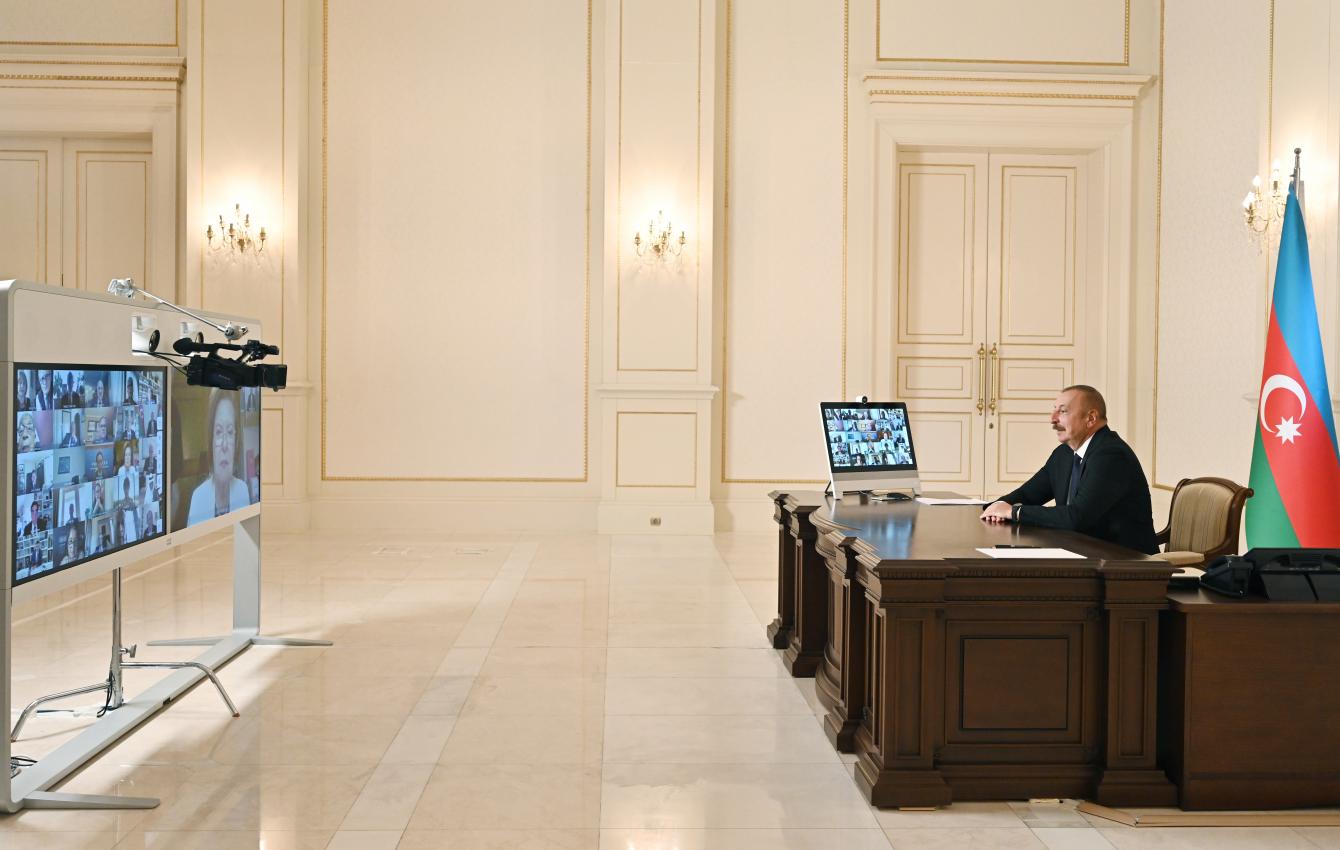
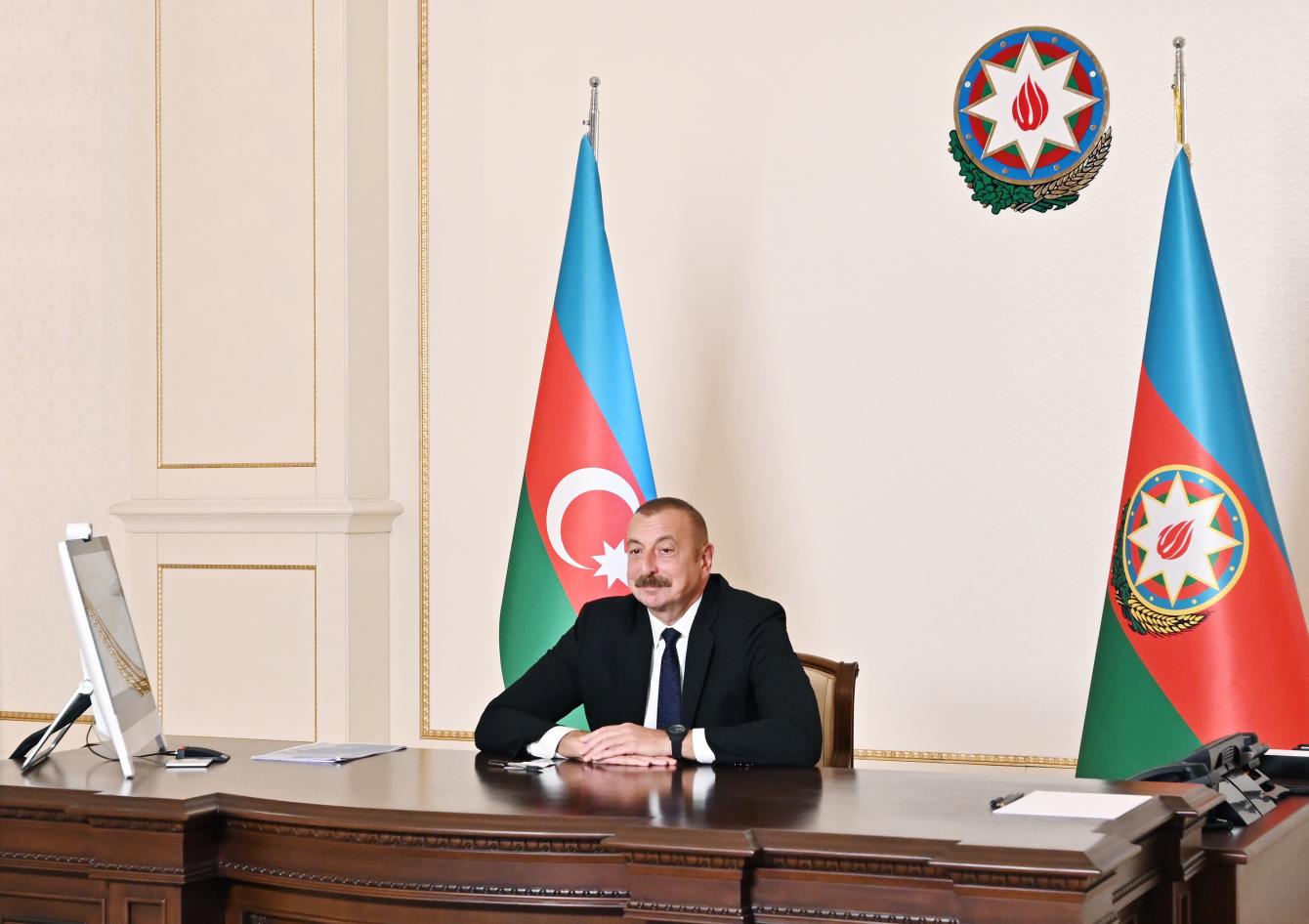
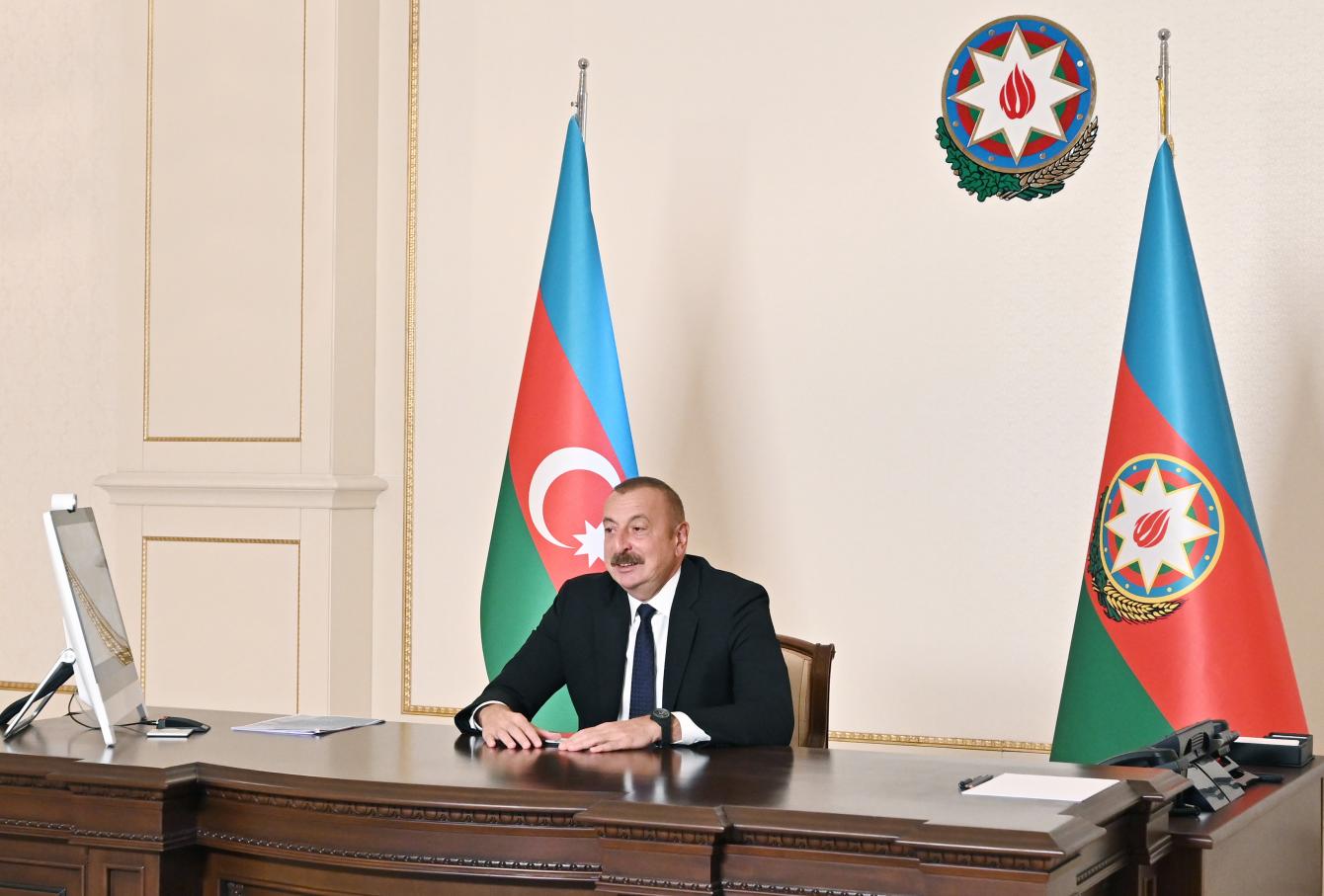
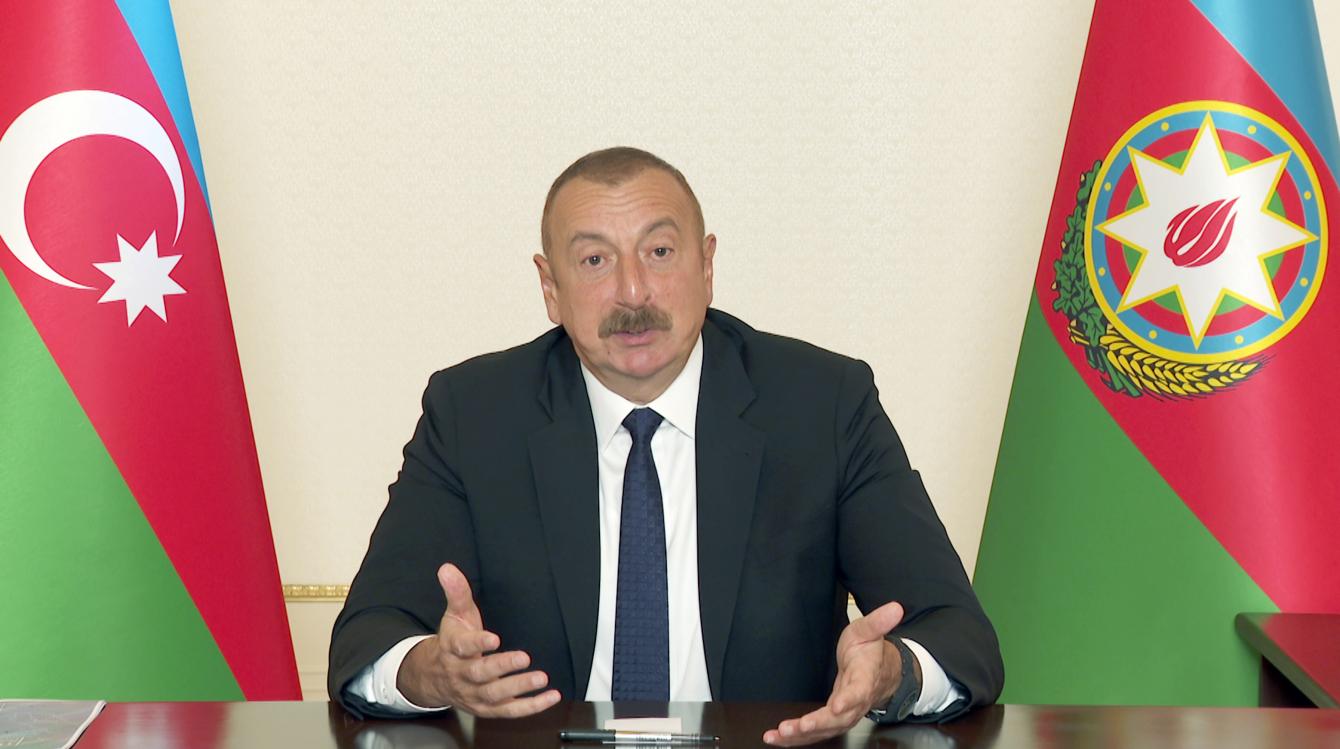
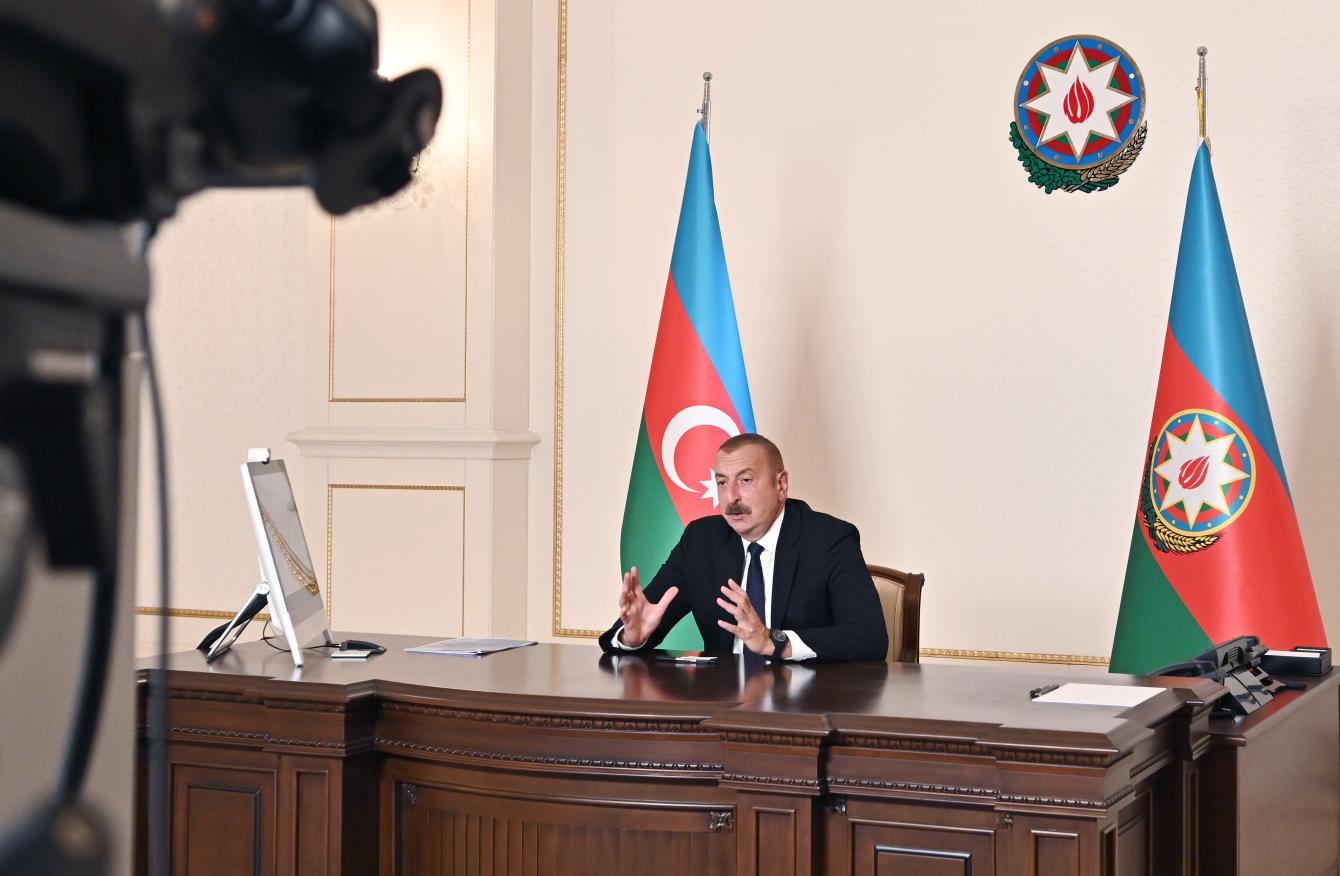

His Excellency Mr. Ilham Aliyev, President of the Republic of Azerbaijan
Dear President Aliyev,
On behalf of the American people, I want to congratulate you and the people of Azerbaijan on your Independence Day.
We value our relationship with the Republic of...
28 May 2025, 17:40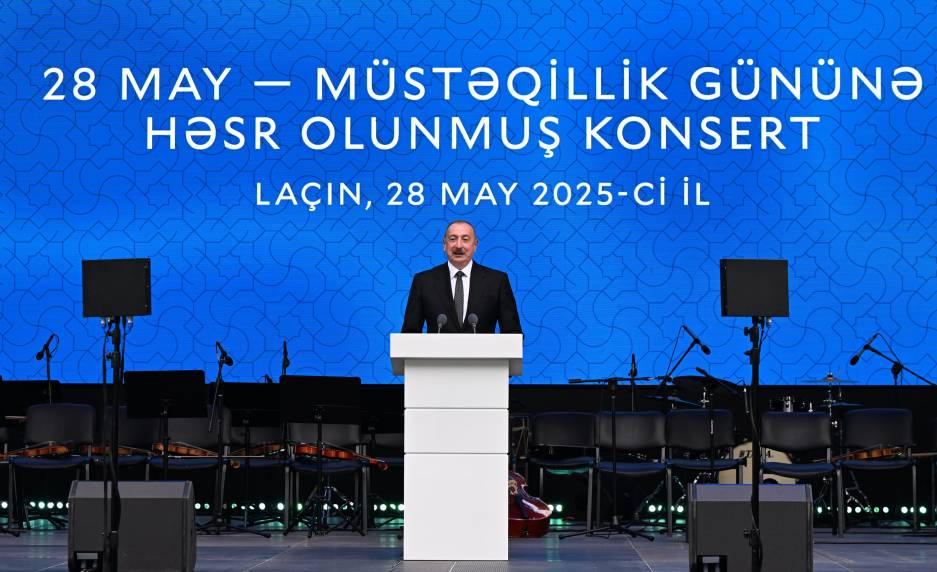
His Excellency Mr. Ilham Aliyev, President of the Republic of Azerbaijan
Dear Mr. President,
On the occasion of Azerbaijan's Independence Day, I extend my warmest congratulations to you and the people of Azerbaijan. I wish your country continued progress,...
28 May 2025, 15:25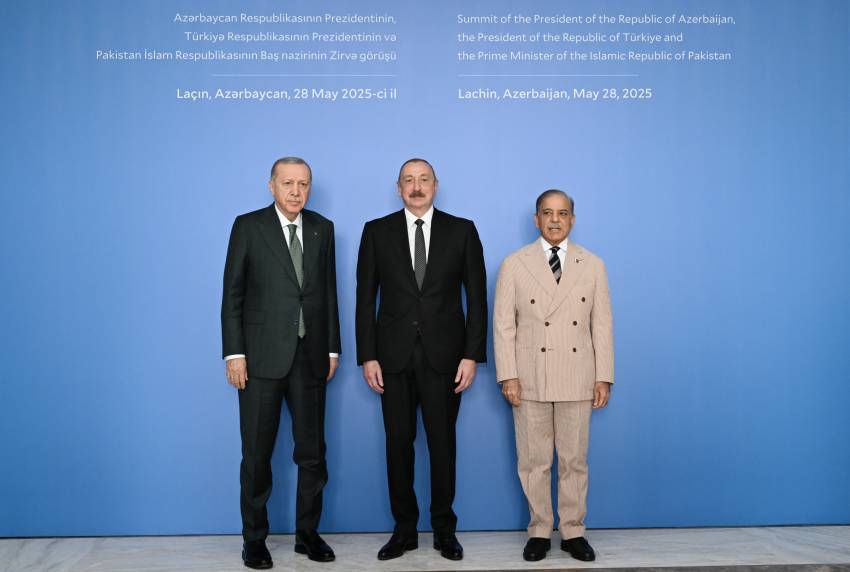
His Excellency Mr. Ilham Aliyev, President of the Republic of Azerbaijan
Your Excellency,
On behalf of the International Secretariat of the Organization for Democracy and Economic Development - GUAM and me personally, I would like to extend our most sincere...
28 May 2025, 13:58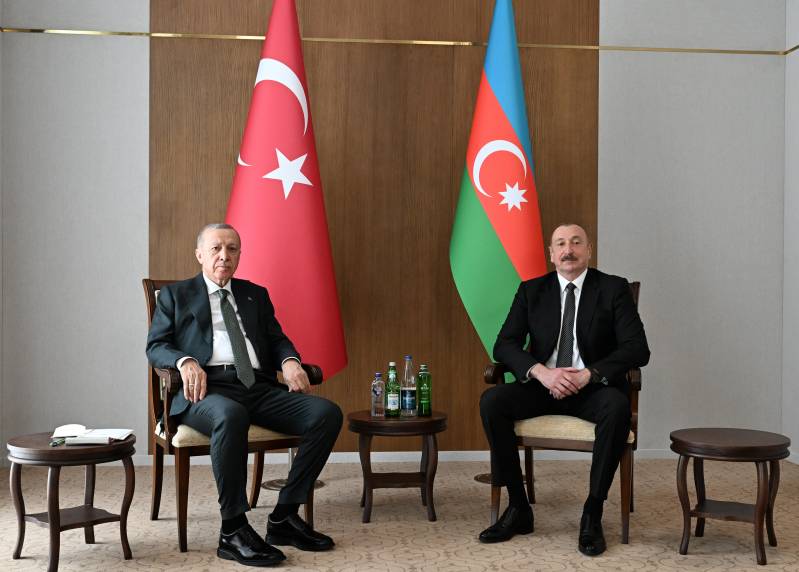
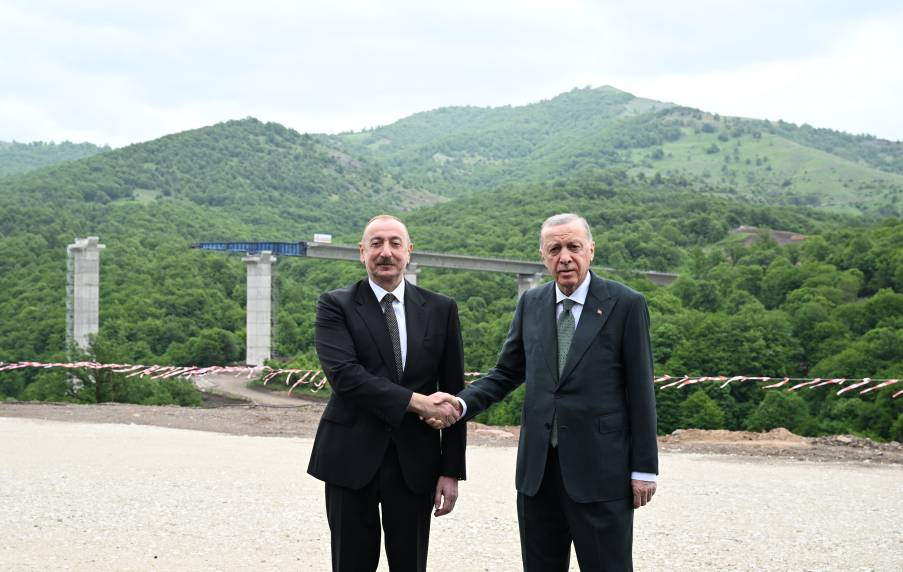
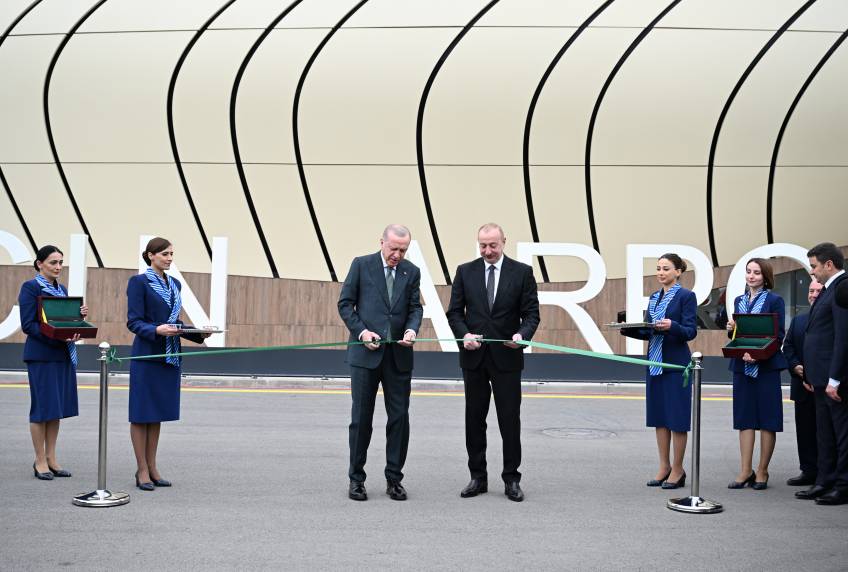
His Excellency Mr. Ilham Aliyev, President of the Republic of Azerbaijan
Dear Mr. President,
On the occasion of the National Day of Azerbaijan, it is with sincere joy that I send Your Excellency, on behalf of the Portuguese people and myself, greetings and wishes of...
27 May 2025, 19:55His Excellency Mr. Ilham Aliyev, President of the Republic of Azerbaijan
Your Excellency, dear friend,
On behalf of the Presidency of Bosnia and Herzegovina and in my personal capacity, I extend to you my heartfelt congratulations on the occasion of May 28 –...
27 May 2025, 19:53His Excellency Mr. Ilham Aliyev, President of the Republic of Azerbaijan
Excellency and dear brother,
As the Republic of Azerbaijan celebrates its National Day, I am pleased to convey to you my sincerest congratulations, wishing your esteemed person continued good...
27 May 2025, 19:51